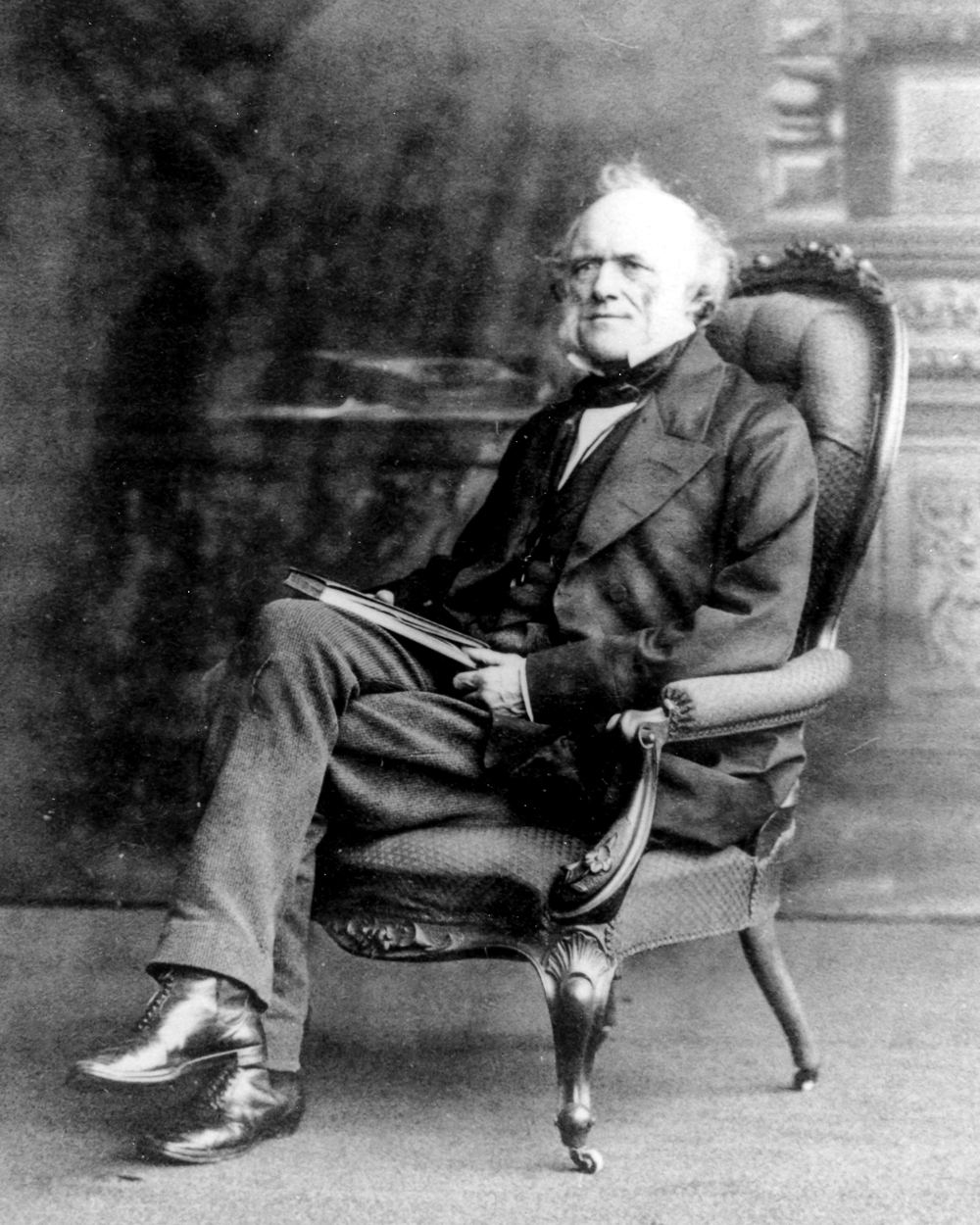As an author, friend and correspondent, Charles Lyell played a crucial role in shaping Darwin's scientific life. Born to a wealthy gentry family in Scotland in 1797, Lyell had a classical and legal education but by the 1820s had become entranced by the popular and exciting subject of geology. Geologists had already revealed a succession of unexpected forms of animals and plants and demonstrated the need for a vastly longer time scale than that allowed for by traditional Biblical criticism. Lyell believed, however, that the subject remained beset by speculation and uncertainty. In Principles of Geology (1830-1833), he aimed to make it a philosophically rigorous science, based on 'actual causes' that could be viewed in action at the present time. In Lyell's view, this ruled out any sudden catastrophes: no earth-destroying comets or mountains popping up like mushrooms.
During the Beagle voyage, Darwin became a 'zealous disciple' of the reforming approach in Principles, especially the way in which small changes could be seen to add up over time to make big changes. This is clear in Darwin's innovative explanation of the origin of coral reefs: although thousands of metres thick, these could be produced by tiny polyps, growing just enough each year to keep up with the subsidence of the ocean floor. Although Lyell had originally suggested a different theory, he appreciated Darwin's reasoning and accepted it. Lyell became a close friend when Darwin moved to London and was an important correspondent, although many letters were later lost. Lyell encouraged the ambitious young naturalist, provided a model of what it meant to be a theorist, and gave good advice about avoiding administrative burdens: 'Don't accept any official scientific place, if you can avoid it, and tell no one that I gave you this advice, as they would all cry out against me as the preacher of anti-patriotic principles.'
Darwin always believed that his books 'came half out of Lyell's brains'. The gradual operation of natural selection and its reliance on immense eons of time were both derived from Lyell. At the same time, the two men disagreed about many issues, particularly about slavery. Most strikingly, early editions of the Principles argued strongly against the transmutation of one species into another. (Lyell even suggested that looking for long-term progressive trends in the history of life might be premature, given the incomplete character of the fossil record.) Darwin told Lyell of his species work in a letter of 1838, but shared the details of natural selection only many years later, in 1856. Despite his distaste for transmutation, Lyell immediately encouraged Darwin to establish priority by publishing. When Alfred Russel Wallace did propose similar views, Lyell (with Joseph Hooker) engineered the 'delicate arrangement' that led to the announcement of natural selection at the Linnean Society in 1858.
Darwin's views posed a terrible paradox for Lyell. In his view, what set humans apart from all other forms of life was reason, and the highest application of reason was science. Natural selection epitomized that science at its best - but with consequence of making humans fundamentally no different from other forms of life. After an agonized struggle, Lyell did come round to accepting a limited application of natural selection in the Antiquity of Man (1863) and the Principles (1868). As Lyell explained to Darwin: 'I have spoken out to the utmost extent of my tether, so far as my reason goes, and farther than my imagination and sentiment can follow'.
See also The Lyell-Lubbock dispute
ODNB article: https://doi.org/10.1093/ref:odnb/17243



